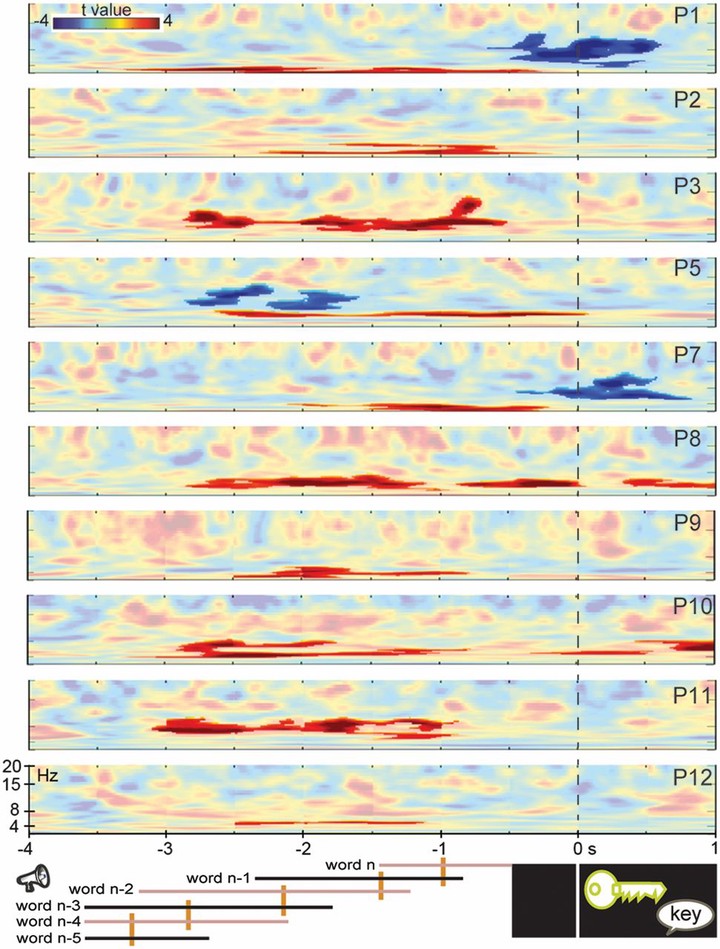Direct brain recordings reveal hippocampal rhythm underpinnings of language processing

Abstract
Language is classically thought to be supported by perisylvian cortical regions. Here we provide intracranial evidence linking the hippocampal complex to linguistic processing. We used direct recordings from the hippocampal structures to investigate whether theta oscillations, pivotal in memory function, track the amount of contextual linguistic information provided in sentences. Twelve participants heard sentences that were either constrained (“She locked the door with the”) or unconstrained (“She walked in here with the”) before presentation of the final word (“key”), shown as a picture that participants had to name. Hippocampal theta power increased for constrained relative to unconstrained contexts during sentence processing, preceding picture presentation. Our study implicates hippocampal theta oscillations in a language task using natural language associations that do not require memorization. These findings reveal that the hippocampal complex contributes to language in an active fashion, relating incoming words to stored semantic knowledge, a necessary process in the generation of sentence meaning.
Rejection history:
| Journal | Outcome | Reason |
|---|---|---|
| Nature Neuroscience | Desk rejected | The usual stuff… |